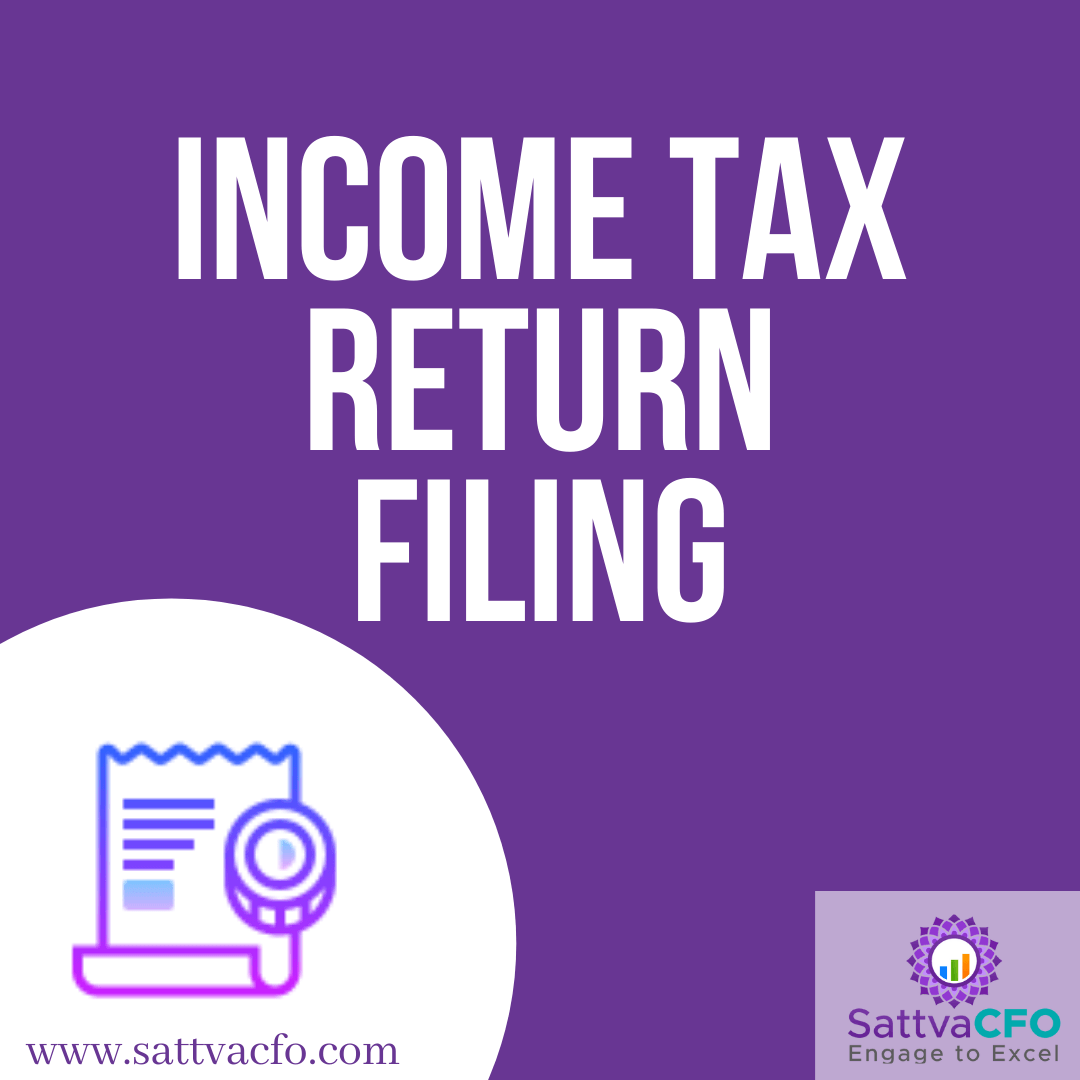Income Tax is applied to all salaried people’s earnings. The Income Tax Act of 1961 governs its rules, and the tax is collected by the Central Government of India. The Central Board of Direct Taxes publishes the format for different assesses to file their returns. Particulars of income received under different heads, gross income, and deductions from gross total income, total income, and tax payable by the assessee are the general criteria for filing the return. Income Tax Return Filing due date – ITR filings last date, how to how to file an income tax return (ITR).
What is Income Tax Return (ITR)?
The forms needed to file income tax with the Income Tax Department are known as an Income Tax Return (ITR). According to the legislation, tax returns must be submitted every year for an individual or corporation that received income during the year, whether from normal income (salary), dividends, interest, capital gains, or other sources.
Tax returns must be submitted by a certain date, regardless of whether they are for an individual or a corporation.
What are the benefits of Income Tax Returns?
Individuals will benefit from filing the ITR when applying for a car loan (2-wheeler or 4-wheeler), a home loan, and so on. As evidence of income statement, all major banks might request a copy of tax returns. This is a document that has to be submitted for the loan to be approved. Even if your total taxable income is less than the basic exemption level and you have no tax due for the year, tax may have been deducted (TDS) from your earnings. You will have to claim a TDS refund in this situation, and you will be required to file an Income Tax Return. Your income and address may be verified using your tax return.
What are the common mistakes in filing ITR?
- Filling out the capital gains schedule CG.
- Email address and phone number
- Bank account information for the reimbursement.
- Details of the taxes deducted and paid.
- If you are a resident, you should have foreign bank accounts.
Who should file Income Tax Return (ITR)?
According to the ITD, the following entities are required to file yearly IT returns:
- Regardless of profit or loss, every firm, whether private limited, LLP, or partnership, must file IT reports.
- Individuals earn money via mutual funds, bonds, equities, fixed deposits, interest, and other sources.
- Individuals who get income through charity or religious trusts, as well as income from voluntary donations
- Individuals and businesses seeking tax refunds
- Salaried individuals with gross income above the exemption level before deductions under sections 80C to 80U
- NRIs and IT professionals on onsite deputation, as well as anybody with foreign income or assets.
- People who have changed their minds about a job are likewise eligible.
What are the details required for IT filings?
To file an income tax return, you’ll need the following information:
- Basic information such as a PAN card, an Aadhar card, and current residence details will be required.
- For the specified fiscal year, bank account information will be required. It is a required disclosure for ITR filing.
- Other revenue sources, such as salary, interest income, and dividends, must also be disclosed.
- Details on the deduction sought under section 80.
- Details on submitting TDS returns and making advance tax payments. Income Tax Return Filing due date – ITR filings last date, how to how to file income tax return (ITR).
How to File Income Tax Returns?
Gather all necessary papers, such as bank statements, last year’s return, and Form 16, to file your IT returns.
Go to www.incometaxindiaefiling.gov.in to get started.
- Using the PAN number, create an account on the website. It becomes your identification number.
- See Form 26AS for further information. It indicates the amount of tax withheld by the employer. This amount should be included in the TDS on Form 16.
- Download the ITR Form that applies to your situation. Consult Vakilsearch if you don’t know which form to use.
- Please fill out the full form, including all essential fields, and then submit it.
- To find out how much tax you owe, click the Calculate Tax option.
- Pay the necessary tax, if applicable.
- On the tax return part of the form, fill in the details of the challan.
What are the different types of Income Tax Returns (ITR) forms?
To far, the department has issued notifications for ITR 1, ITR 2, ITR 3, ITR 4, ITR 5, ITR 6, and ITR 7. Every taxpayer is required to file their ITR on or before the deadline. The application of ITR forms varies based on the taxpayer’s sources of income, the quantity of money generated, and the taxpayer’s category (individuals, HUFs, corporations, etc.).
What is the due date for filing Income Tax Return?
- A company or individual who is not subject to audit: July 31.
- September 30: A corporation or other entity that may be audited.
- Individuals and businesses must file late returns by March 31.
Income Tax Late Fees
According to the new regulations announced under section 234F of the Income Tax Act, which took effect on April 1, 2017, submitting your ITR beyond the deadline might result in a penalty of up to Rs 10,000. To break it down for the current year, there will be no penalty if you file your ITR for FY 2019-20 after January 10 (or February 15 for audit and transfer pricing instances). The penalty limit would be raised to Rs 10,000 for taxes submitted after January 10, 2020. However, small taxpayers will be relieved to learn that if their total income exceeds Rs 5 lakh, the maximum penalty for late filing would be Rs 1000. Income Tax Return Filing due date – ITR filings last date, how to how to file income tax return (ITR).
FAQ’s on Income Tax Return Filing
What is ITR-V?
The ITR-V stands for Income Tax Return Verification, and it is generated by the IT department allowing taxpayers to check the validity of their e-filing. It only applies to individuals who do not use a digital signature when filing.
How can I claim for Income Tax Refund?
- Log in to the IT department’s official returns portal.
- Register using your PAN, which will serve as your portal user ID.
- Select the applicable year and ITR form under the ‘Download’ option.
- Open the Excel program you downloaded and fill in all of the information requested on Form 16.
- If you owe more, the difference will be computed and presented in the “Refund” field of your ITR form.
- After you’ve checked everything, an XML file will be produced and saved on your computer.
- Click the Submit button on the online tax site and submit the XML file.
My company deducts TDS. Do I still have to file my tax return?
You must, in fact, file. There’s a distinction to be made between submitting a tax return and deducting TDS. You file a tax return to show that you’ve paid all of your taxes. The IT return will also assist you in obtaining a visa or obtaining a loan.
How do I pay tax to the government?
On the official website of the IT Department, you can make a direct contribution to the government. Net banking and Challan 280 are also acceptable methods of payment.
Can I file income tax returns for the years I missed?
Yes. You can file IT returns for all of the years that have already passed.
Is it necessary to attach any documents along with the return of income?
Attachment-free forms are often known as Income Tax Return (ITR) forms. It implies that taxpayers are not required to submit any supporting documentation (such as TGS certificates, investment proofs, etc.). Whether you file your return online or manually, you do not need to attach these papers. However, you must have these documents in the correct sequence with you at all times. In some instances, such as an investigation, evaluation, or audit, you may be required to submit these to the authorities.
If I have paid excess tax, how will it be refunded to me?
When you file your IT Return, you can request a refund for any extra taxes you owe. Your reimbursement will be credited to the bank account you choose through ECS transfer. Please double-check that your bank data (IFSC code, account number, etc.) on the ITR form are correct.
Is it necessary to file a return of income when I don’t have any positive income?
Even if you don’t have any positive income, you must file a tax return on time. If you experience a loss in a certain fiscal year, you may wish to carry it forward to compensate for the positive income in the following years. This is only possible if you file your IT return on time and include a note about the loss.
What is the process of ITR preparation and filing?
The Internal Revenue Service has made it simple for all taxpayers to file their tax returns online, commonly known as e-filing or electronic filing. Compared to the traditional offline filing technique, e-filing is simpler because it does not require any complicated documentation and can be done from the convenience of any location. Access the https://incometaxindiaefiling.gov.in/
Income Tax Return Who should file and when to file?
Individuals whose source of income is a salary, pension, lottery, or income from property or any other source are required to file returns under Section 139 (1) of the Income Tax Act. If an individual’s gross taxable income during the financial year exceeds the tax-free level, they must file the return on or before the due date. IT returns must be filed by July 31 and September 30 under Section 139 of the Income Tax Act of 1961. The dates that are required vary depending on the nature of the work.




